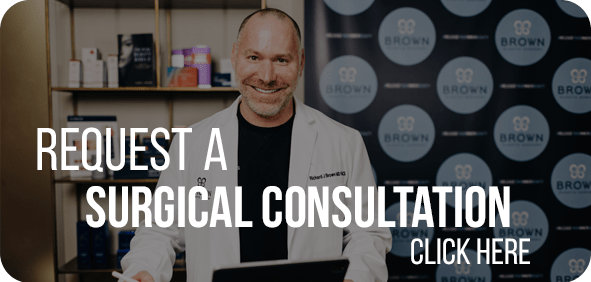SMOKING AND PLASTIC SURGERY, THEY DON’T MIX
Many surgeons, including Scottsdale cosmetic surgeon Dr Richard J Brown limit elective surgical procedures that they perform on smokers because of the increase in risk of pulmonary complications, and wound healing complications, which may greatly decrease the quality of surgical results. Many studies in our scientific literature have shown that patients who smoke are as high as 12.5 times more likely to develop wound healing problems than non-smokers. In particular, patients who smoke and who have cosmetic surgery, such as breast reductions, tummy tucks, or other procedures that create skin “flaps,” are more prone to wound healing complications. If you cannot give up smoking for 4 weeks before and 4 weeks after the operation, Phoenix plastic surgeon Dr. Brown may want you to rethink your decision to have plastic surgery.
Individuals exposed to second-hand smoke, and other nicotine containing products including nicotine gum, are also at potential risk for similar complications attributable to nicotine exposure. Additionally, smoking may have a significant negative effect on anesthesia and recovery from anesthesia, with coughing and possibly increased bleeding. Individuals who are not exposed to tobacco smoke or nicotine-containing products have a significantly lower risk of this type of complication.The carbon monoxide in cigarette smoke greatly reduces the blood’s ability to carry oxygen, which is essential for wound healing. Smoking slows healing, and if a skin “flap” was created, the wound may not heal at all. So when it comes to smoking and plastic surgery, remember to talk to your doctor before your procedure. Contact Scottsdale plastic surgeon Dr Brown to schedule your consultation today.

PATIENT TESTIMONIALS
"Hi, my name is Diana. I am a patient of Dr. Richard J. Brown. I started my breast reconstruction on March 23, 2012 after having a double mastectomy in May of 2012. Dr. Brown has done an amazing job, my progress is great and my breasts are beautiful once again. Dr. Brown is very compassionate and professional. Thank you Dr. Brown for giving me back what cancer took away from me."*.
- Diana R.
*Individual results may vary*
"My experience with Dr. Brown and his staff has been nothing less than exceptional! It's been a long road. I just completed breast reconstruction/augmentation and removal of excess skin/fat from my upper arms following a 100+ pound weight loss. Very pleased with the early results! Not just highly recommended, but the highest recommendation ever!!!"*
-Lisa W
*Individual results may vary*



